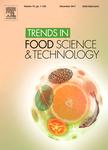版权所有:内蒙古大学图书馆 技术提供:维普资讯• 智图
内蒙古自治区呼和浩特市赛罕区大学西街235号 邮编: 010021

作者机构:Jiangnan Univ State Key Lab Food Sci & Resources Wuxi 214122 Jiangsu Peoples R China Jiangnan Univ Sch Food Sci & Technol Wuxi 214122 Jiangsu Peoples R China Jiangnan Univ Sch Artificial Intelligence & Comp Sci Wuxi 214122 Jiangsu Peoples R China Swiss Fed Inst Technol Inst Environm Engn Laura Hezner Weg 7 CH-8093 Zurich Switzerland Nanyang Technol Univ Lee Kong Chian Sch Med Singapore Singapore Jiangnan Univ Natl Engn Res Ctr Funct Food Wuxi 214122 Jiangsu Peoples R China
出 版 物:《TRENDS IN FOOD SCIENCE & TECHNOLOGY》 (Trends Food Sci. Technol.)
年 卷 期:2025年第156卷
核心收录:
学科分类:0832[工学-食品科学与工程(可授工学、农学学位)] 08[工学]
基 金:National Natural Science Foundation of China Fundamental Research Funds for the Central Universities [JUSRP622034] Wuxi Taihu Talent Project
主 题:Food recommendation system Machine learning Personalized diet Recommendation algorithm Precision nutrition
摘 要:Background: The intersection of nutrition and technology gave birth to the research of food recommendation system (FRS), which marked the transformation of traditional diet to a more personalized and healthy direction. The FRS uses advanced data analysis and machine learning technology to provide customized dietary advice according to users personal preferences, and nutritional needs, which plays a vital role in promoting public health and reducing disease risks. Scope and approach: This review presents the architecture of FRS and deeply discusses various recommendation algorithms, including the content-based method, collaborative filtering method, knowledge graph-based method, and hybrid methods. The review further introduces existing data resources and evaluation metrics, and highlights key technologies in user profiling and food analysis. In addition, the wide application of personalized FRS is summarized, and the importance of these systems in satisfying users dietary preferences and maintaining balanced nutrition is emphasized. Finally, the key challenges and development trends of FRS are deeply analyzed from data level, model level and user experience level. Key findings and conclusions: Personalized FRS shows great potential in helping users make healthier dietary decisions. Although there are still many challenges, such as dealing with heterogeneous data and interpretability. But with the progress of technology, there will be broader development in the future. For example, the powerful data processing ability of deep learning will effectively improve the accuracy of the system. In addition, the application of interactive recommendation system and large language model will also provide strong support for satisfying user experience and improving acceptance.